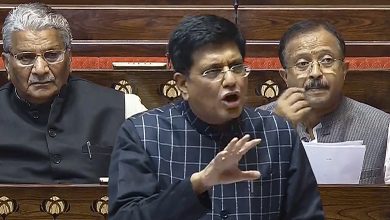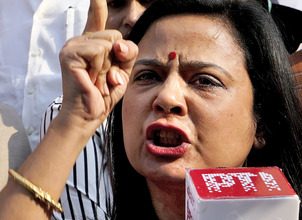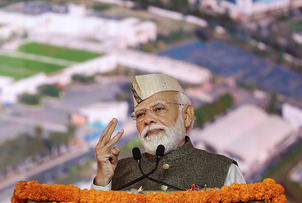HC rejects Kundra’s pleas challenging arrest
Mumbai, Aug 07 (PTI):
The Bombay High Court on Saturday dismissed petitions filed by businessman Raj Kundra and his aide Ryan Thorpe challenging their arrest and police custody in a pornography case, taking note of the prosecution’s allegation that they had tried to destroy evidence. The petitioners, who are now in judicial custody, did not deserve any relief at this point, said Justice A S Gadkari in the ruling.
Kundra (45), who is married to actor Shilpa Shetty, is accused of producing porn films and distributing them online through an app. The HC took note of a statement made on oath by the investigating officer that Kundra and Thorpe began to delete messages and other evidence from their mobile phones when a police team went to their office.
The court also referred to chief public prosecutor Aruna Pai’s submission that the police could not be expected to be “mute spectators” while the accused destroyed evidence.
The duo were arrested to ensure there was no further destruction of evidence, Pai had argued. The petitioners had challenged the legality of their arrest, sought quashing of a magistrate’s two orders remanding them in police custody, and prayed to the HC that they be released forthwith.
The police had claimed that a notice under section 41A of the Code of Criminal Procedure (CrPC) had been issued to Thorpe and Kundra, but Kundra refused to accept it. Under this CrPc provision, police, in a case where arrest is not needed, can issue a notice and summon an accused/suspect to record statement.
Senior Advocate Aabad Ponda, who appeared for Kundra, argued that even if his client had refused to accept the section 41A notice, the prosecution should have sought a court’s permission under section 41A(4) before arresting him. Advocate Abhinav Chandrachud, Thorpe’s lawyer, argued that while a section 41A notice was issued to him, he was not given time to respond to it.
The high court said in the ruling that after such a notice is served, “what is expected under the law from the accused is to co-operate in the process of investigation and not to indulge in destruction of incriminating material/evidence against him/her which the investigating agency intends to seize.” Kundra’s lawyer had claimed that the charge of destruction of evidence was added later.








